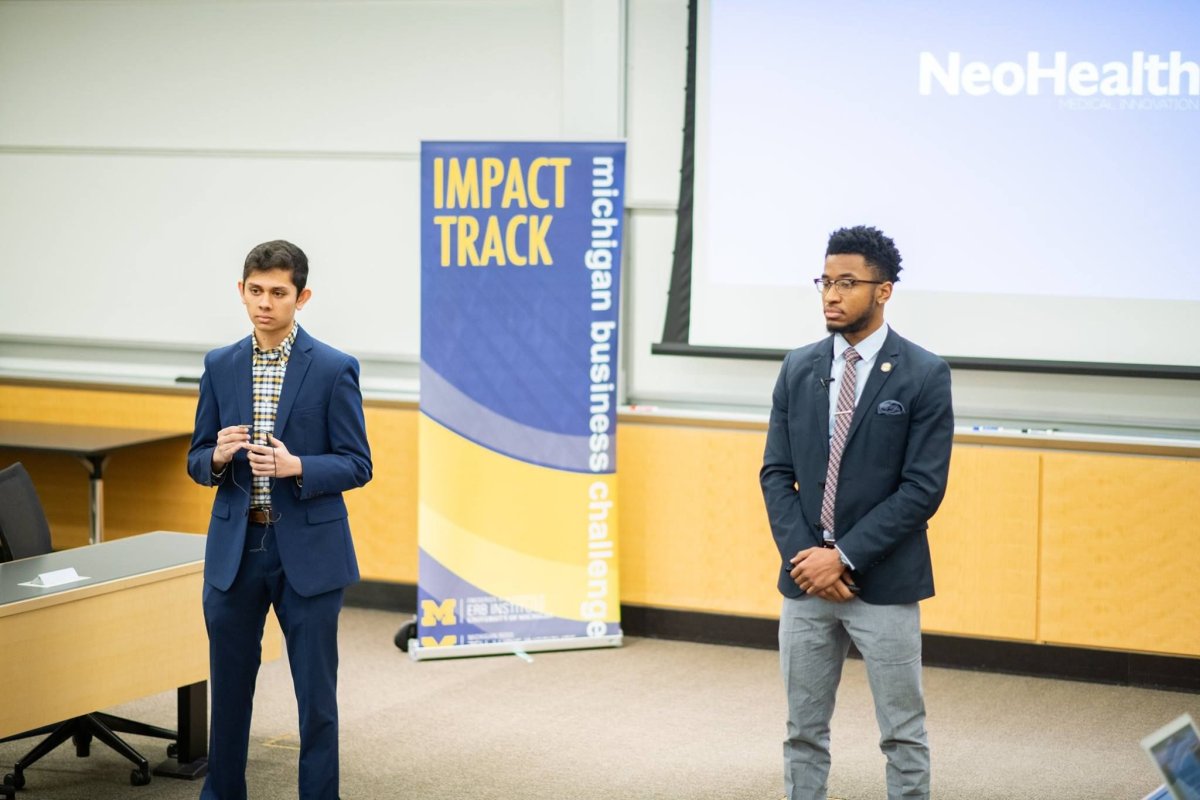During my orientation at the University of Michigan, my fellow freshman and I were asked to write one big question that we hoped to tackle during our time at the university. After pondering for a few minutes, I wrote something along the lines of "How can I make an impact and improve the quality of life for people around the world?" and glanced around the room, expecting that my answer would be unique. Instead, I discovered that virtually every other student had written a similar response. I felt both comforted knowing I was surrounded by equally ambitious students and illogically enthusiastic that together, we would solve every major problem of humanity during our four years at college.
My first year of undergrad transformed me from a wide-eyed freshman into a cynical sophomore who began to feel that the chances of making an impact during college were slim. I was stuck in a monotonous routine of attending class, regurgitating what I had learned on exams, and dumping this knowledge as soon as the proctors told me to drop my pencil. Even if I managed to retain the material, I was simply learning about the discoveries and theories of famous scientists and academics, not creating anything of my own. "I want to make an impact" became an empty statement that I would recite during interviews to highlight my ambition but deep down inside, I acknowledged that I was not engaging in activities that would allow me to tackle my big question. I realized that if I wanted my greatest achievement during college to be something other than memorizing hundreds of PowerPoint slides while severely sleep-deprived, I had to allocate my time towards activities that would help me make this abstract idea of an impact more concrete. Entrepreneurship was calling.

Prior to college, my only exposure to entrepreneurship was hearing mythical stories of students coding an app in their dorm and then, in a matter of weeks, raking in millions of dollars, rubbing shoulders with celebrities, and lounging in a sports car parked outside of their mansion in Silicon Valley. Although I didn't know much about the intricacies of the process, the idea of having a global impact and Ferrari sounded great to me.
The fantastical life of an entrepreneur along with my disillusionment with college pushed me to start engaging with the entrepreneurial resources at Michigan, participating in a variety of idea competitions and hackathons. In the summer of 2017, over the course of forty-eight hours, a few other students and I won a hackathon for a project that dealt with 3D printing a medical implant. The competition and its aftermath were really exciting, and for a while I was blinded by optimism, imagining myself in a few short months traveling the world giving lectures, dining with Elon Musk, and building my beachfront mansion.
In fact, though, I was not actually passionate about the project itself. I was simply using it as a vehicle to achieve my goals, and after a few months, we ended up abandoning the project altogether. This experience, however, taught me my first major lesson in the world of entrepreneurship: if instead of passion a project's motivation is simply money, fame, or to achieve a vague goal of making an impact, then you are guaranteed to fail. Even though my project didn't become a successful startup, the experience helped shatter my entrepreneurial naivety. I realized that the impetus to enter the field of entrepreneurship should be a desire to create a better world by solving problems that you are deeply passionate about.
Fortunately, my first entrepreneurial experience did not discourage me, and I ended up winning a hackathon the next year on a project related to detecting and eliminating counterfeit drugs in developing countries. As I researched the problem of counterfeit drugs, I was horrified by statistics indicating that millions of people suffer the consequences of not having access to legitimate medication. I became deeply invested in trying to solve this problem in order to alleviate suffering and ended up co-founding a company called NeoHealth. NeoHealth is a medical innovation company that is developing a device and software component to allow for the detection of counterfeit drugs.

I still have so many lessons to learn and it is difficult to predict where my entrepreneurial journey will take me, but what grounds me in this unstable world of startups is that I'm working on a solution to a problem that I truly care about and that has the potential to help people. It is also fulfilling to know that I am able to create something tangible myself instead of simply regurgitating the ideas of others, and I'd trade that for a Ferrari any day.
My advice to any college student is to take advantage of your university. College is a place where there is room for failure and resources to aid success, making it the single best place in which to explore the field of entrepreneurship. Find a problem that you care about solving and help create the world you want to live in.
Sujai Arakali is junior at the University of Michigan and co-founder of NeoHealth, LLC.
Uncommon Knowledge
Newsweek is committed to challenging conventional wisdom and finding connections in the search for common ground.
Newsweek is committed to challenging conventional wisdom and finding connections in the search for common ground.
About the writer
To read how Newsweek uses AI as a newsroom tool, Click here.








